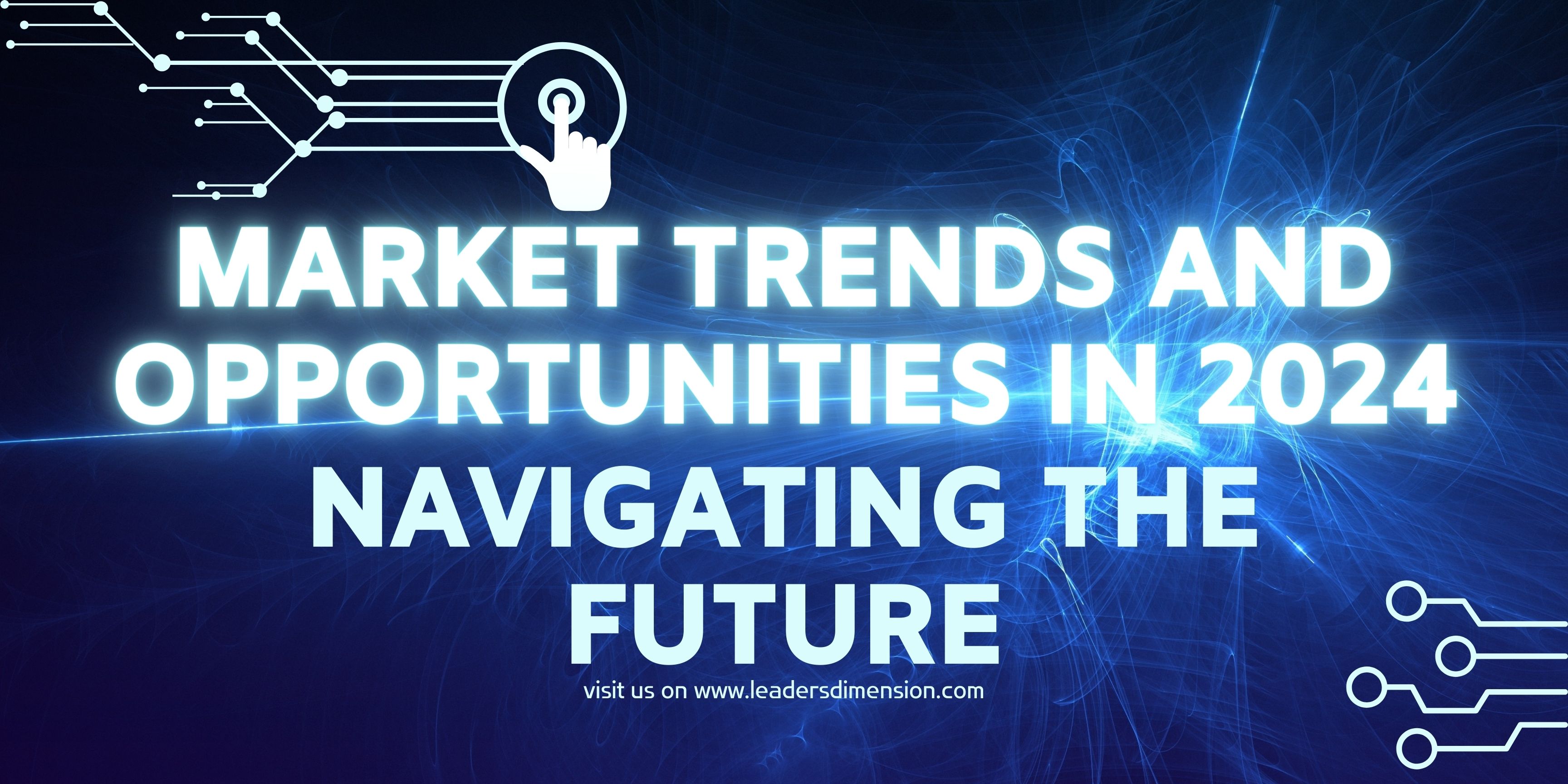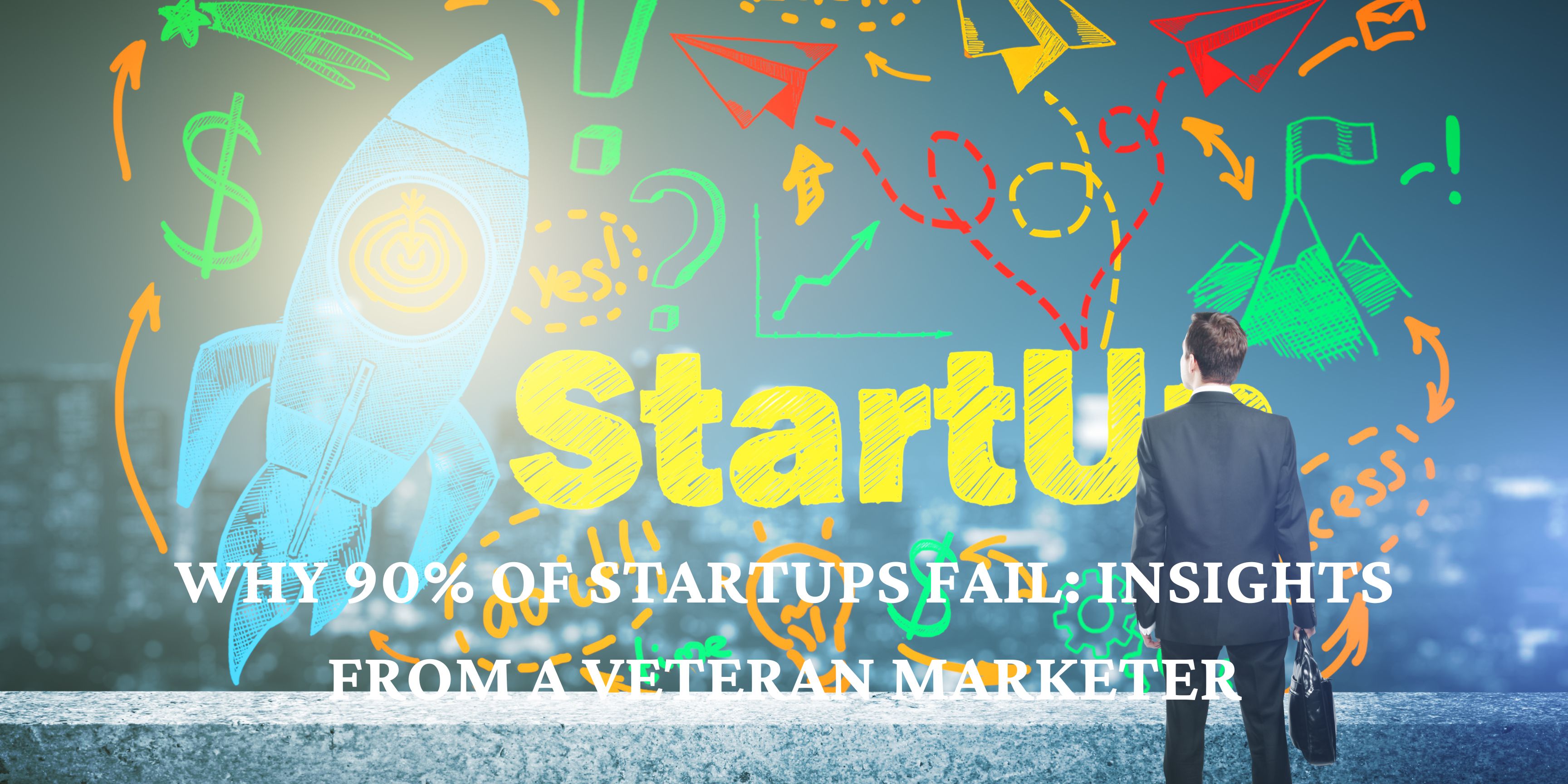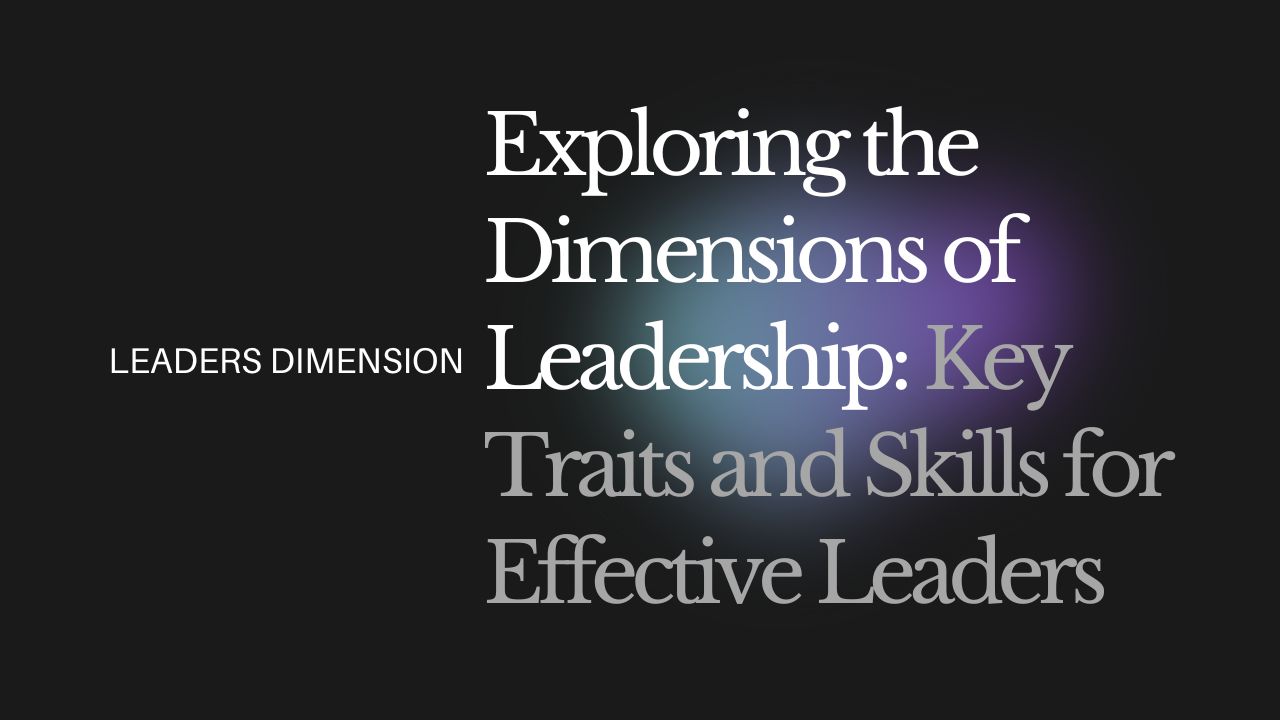Market Trends and Opportunities in 2024: Navigating the Future of Business and Investment
As we move through 2024, the global economy is at a pivotal juncture. The landscape of market trends and opportunities is rapidly evolving, driven by technological advancements, shifting consumer behaviors, and geopolitical dynamics. This article delves into the key trends shaping various sectors and the opportunities they present for investors and businesses alike. From the resurgence of AI and the green energy revolution to the transformative potential of the metaverse and digital finance, we explore how these trends are creating new avenues for growth and innovation.
Artificial Intelligence and Machine Learning
Artificial Intelligence (AI) and Machine Learning (ML) continue to dominate the technological frontier. Their applications span across industries, transforming how businesses operate and engage with customers. According to a report by Grand View Research, the global AI market size is expected to grow at a CAGR of 37.3% from 2023 to 2030, reaching $1,811.8 billion by 2030.
Key Trends
Generative AI: Tools like ChatGPT and DALL-E are revolutionizing content creation and digital interaction. Businesses are leveraging generative AI to enhance customer experiences, streamline operations, and innovate product development.
AI in Healthcare: AI is playing a crucial role in personalized medicine, diagnostics, and patient care management. Innovations such as AI-powered diagnostics and robotic surgery are not only improving healthcare outcomes but also driving efficiencies.
AI Ethics and Regulation: As AI becomes more pervasive, ethical considerations and regulatory frameworks are gaining importance. Companies are focusing on ethical AI practices to ensure transparency, fairness, and accountability in their AI deployments.
Opportunities
Investment in AI Startups: Venture capitalists and investors are increasingly looking towards AI startups that offer innovative solutions in niche markets.
AI as a Service (AIaaS): Enterprises are adopting AIaaS models to integrate AI capabilities without significant upfront investments. This trend is creating opportunities for cloud service providers and AI solution vendors.
Cross-Industry Applications: From retail and finance to manufacturing and logistics, AI applications are expanding, offering businesses the chance to gain competitive advantages through data-driven insights and automation.
Green Energy and Sustainability
The push towards green energy and sustainability is reshaping industries worldwide. Governments, corporations, and consumers are prioritizing environmental responsibility, driving the growth of renewable energy sources and sustainable practices. According to the International Energy Agency (IEA), renewable energy is set to account for nearly 95% of the increase in global power capacity through 2025.
Key Trends
Renewable Energy Expansion: Solar and wind power continue to lead the renewable energy charge, supported by decreasing costs and technological advancements. The integration of battery storage systems is also enhancing the reliability of renewable sources.
Sustainable Finance: ESG (Environmental, Social, Governance) criteria are becoming a crucial factor in investment decisions. Sustainable finance products, such as green bonds and ESG funds, are attracting significant capital.
Circular Economy: Businesses are adopting circular economy principles to minimize waste and optimize resource use. This approach is not only environmentally beneficial but also presents cost savings and new revenue streams.
Opportunities
Renewable Energy Projects: Investment in large-scale renewable energy projects, such as solar farms and offshore wind installations, offers long-term growth potential.
Energy Efficiency Solutions: Companies that provide technologies and services to improve energy efficiency are in high demand, particularly as industries seek to reduce carbon footprints.
Sustainable Consumer Goods: There is a growing market for sustainable products, from eco-friendly packaging to ethically sourced materials, as consumers increasingly prioritize sustainability in their purchasing decisions.
The Metaverse and Digital Reality
The concept of the metaverse, a collective virtual shared space, is gaining traction as a transformative force in the digital landscape. While still in its early stages, the metaverse is expected to revolutionize how we interact, work, and play. According to Bloomberg, the metaverse market could reach $800 billion by 2024.
Key Trends
Virtual and Augmented Reality (VR/AR): VR and AR technologies are enhancing immersive experiences in gaming, entertainment, and professional training. Advances in hardware and software are making these technologies more accessible and practical.
Digital Real Estate: Virtual real estate in the metaverse is becoming a lucrative market. Platforms like Decentraland and The Sandbox allow users to buy, sell, and develop virtual land.
Enterprise Applications: The metaverse offers potential for virtual collaboration and remote work environments, allowing businesses to create more engaging and efficient workflows.
Opportunities
Investing in Metaverse Platforms: Early investment in metaverse platforms and technologies can yield substantial returns as these virtual worlds expand and mature.
Content Creation and Development: There is significant demand for content creators, developers, and designers to build and enhance metaverse experiences.
Virtual Commerce: The rise of virtual economies within the metaverse presents opportunities for brands and businesses to engage with consumers in new and innovative ways.
Digital Finance and Cryptocurrency
Digital finance and cryptocurrencies are redefining the financial landscape, offering new ways for individuals and businesses to manage and transfer value. The adoption of blockchain technology and decentralized finance (DeFi) is accelerating, creating a more inclusive and efficient financial system. According to PwC, the global blockchain market size is expected to grow to $39.7 billion by 2025.
Key Trends
Cryptocurrency Adoption: Cryptocurrencies like Bitcoin and Ethereum are gaining acceptance as alternative investment assets and means of transaction. The rise of stablecoins is further facilitating the integration of digital currencies into traditional financial systems.
DeFi Growth: DeFi platforms are disrupting conventional financial services by offering decentralized lending, borrowing, and trading. These platforms leverage smart contracts to provide transparent and accessible financial products.
Central Bank Digital Currencies (CBDCs): Governments worldwide are exploring CBDCs as a way to modernize payment systems and enhance financial inclusion. The development and implementation of CBDCs could significantly impact global finance.
Opportunities
Crypto Investments: Investing in established and emerging cryptocurrencies offers potential for high returns, albeit with significant risk and volatility.
Blockchain Applications: Beyond cryptocurrencies, blockchain technology has applications in supply chain management, digital identity verification, and more. Companies that harness blockchain for practical use cases can unlock new value.
DeFi Platforms: Participation in DeFi platforms and protocols provides opportunities for yield farming, staking, and other innovative financial mechanisms that offer attractive returns.
Healthcare Innovation
Healthcare is undergoing a significant transformation driven by advancements in technology, evolving patient expectations, and the aftermath of the COVID-19 pandemic. Innovations in telemedicine, digital health, and biotechnology are revolutionizing patient care and medical research. According to McKinsey, the global digital health market is projected to reach $1 trillion by 2025.
Key Trends
Telemedicine and Remote Care: The pandemic accelerated the adoption of telemedicine, making remote consultations and digital health monitoring mainstream. This trend is likely to persist as healthcare systems seek to improve access and reduce costs.
Precision Medicine: Advances in genomics and data analytics are enabling personalized treatment plans tailored to individual patient profiles. Precision medicine holds the promise of more effective therapies and better patient outcomes.
Biotech Breakthroughs: Biotechnology is at the forefront of medical innovation, with developments in gene editing, regenerative medicine, and novel drug therapies. These breakthroughs have the potential to address previously untreatable conditions.
Opportunities
Investing in Telehealth: Companies that provide telehealth solutions and platforms are well-positioned to capitalize on the ongoing shift towards digital healthcare delivery.
Genomics and Biotech Startups: Investing in startups focused on genomics and biotech innovations can yield significant returns as these fields continue to advance and disrupt traditional healthcare.
Healthcare Data Analytics: The growing volume of healthcare data presents opportunities for companies that can harness analytics and AI to improve clinical decision-making and operational efficiencies.
E-commerce and Consumer Behaviour
E-commerce continues to grow at an unprecedented pace, reshaping retail and consumer behavior. The convenience and accessibility of online shopping, combined with advancements in logistics and payment systems, are driving this expansion. According to eMarketer, global e-commerce sales are expected to reach $7.4 trillion by 2025.
Key Trends
Omnichannel Retail: Retailers are increasingly adopting omnichannel strategies to provide seamless shopping experiences across online and offline channels. This approach enhances customer engagement and loyalty.
Direct-to-Consumer (DTC) Models: Brands are bypassing traditional retail channels to sell directly to consumers online. DTC models offer better margins and closer customer relationships.
Personalization and Customer Experience: Advances in AI and data analytics are enabling more personalized shopping experiences, from tailored recommendations to customized products.
Opportunities
E-commerce Platforms and Technologies: Investing in e-commerce platforms, payment solutions, and logistics technologies can capitalize on the ongoing growth of online retail.
Niche and DTC Brands: Niche and direct-to-consumer brands that cater to specific consumer needs or preferences can thrive in the competitive e-commerce landscape.
Customer Experience Solutions: Companies that provide technologies and services to enhance customer experience, such as AI-driven personalization and omnichannel integration, are well-positioned for growth.
Geopolitical and Economic Dynamics
Geopolitical and economic factors play a crucial role in shaping market trends and opportunities. From trade policies and regulatory changes to shifts in economic power and global supply chains, understanding these dynamics is essential for navigating the future business landscape.
Key Trends
US-China Relations: The complex relationship between the US and China continues to influence global trade and investment. Businesses must navigate the challenges and opportunities arising from this dynamic.
Regional Economic Integration: Initiatives like the African Continental Free Trade Area (AfCFTA) and the Regional Comprehensive Economic Partnership (RCEP) are fostering economic integration and creating new markets.
Inflation and Monetary Policy: Central banks’ responses to inflation and monetary policy shifts are impacting financial markets and investment strategies. Businesses need to adapt to changing interest rates and economic conditions.
Opportunities
Diversified Supply Chains: Companies can reduce risk and enhance resilience by diversifying their supply chains and exploring new markets for sourcing and production.
Emerging Market Investments: Emerging markets offer significant growth potential, particularly in regions undergoing economic integration and development.
Risk Management and Strategic Planning: Firms that effectively manage geopolitical risks and align their strategies with global economic trends can gain competitive advantages.
Cybersecurity and Digital Trust
As digital transformation accelerates, cybersecurity and digital trust have become paramount. The increasing frequency and sophistication of cyber threats pose significant risks to businesses and individuals. According to Cybersecurity Ventures, global spending on cybersecurity is expected to exceed $1 trillion from 2021 to 2025.
Key Trends
Zero Trust Architecture: The adoption of zero trust principles, which require strict verification for access to resources, is gaining traction as a fundamental approach to cybersecurity.
Ransomware and Cyber Attacks: Ransomware attacks and other forms of cybercrime are becoming more prevalent, targeting businesses of all sizes across various industries.
Data Privacy and Compliance: Regulatory requirements around data privacy, such as GDPR and CCPA, are prompting organizations to enhance their data protection measures and compliance efforts.
Opportunities
Cybersecurity Solutions and Services: The demand for advanced cybersecurity technologies and services is growing, presenting opportunities for providers of security software, consulting, and managed services.
Digital Identity and Authentication: Companies that offer robust digital identity verification and authentication solutions can help businesses secure their online interactions and transactions.
Cyber Insurance: As cyber threats increase, the market for cyber insurance is expanding, providing businesses with protection against financial losses resulting from cyber incidents.
The dynamic landscape of 2024 presents a myriad of market trends and opportunities across various sectors. From the transformative impact of AI and the metaverse to the imperative of sustainability and digital trust, businesses and investors must stay attuned to these evolving trends. By understanding and leveraging these opportunities, they can navigate the complexities of the modern economy and position themselves for success in an increasingly interconnected and rapidly changing world.
As we move forward, the ability to adapt and innovate will be key. Whether it's through embracing new technologies, exploring emerging markets, or implementing sustainable practices, the future holds immense potential for those ready to seize it.
- 20 June 2024






